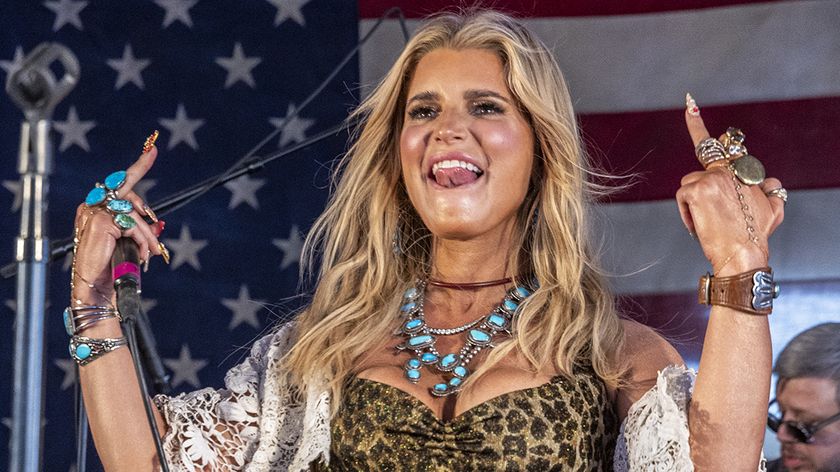
The Flaming Lips' Wayne Coyne: the 5 greatest prog-rock albums of all time
Album titles like Hit To Death In The Future Head could have been a clue. Or perhaps it was the 24-hour-long song 7 Skies H3. Or just maybe it was the The Flaming Lips' track-by-track reimaginings of both Pink Floyd's Dark Side Of The Moon and King Crimson's In The Court Of The Crimson King.
Yes, it was there all along – that band leader Wayne Coyne is a total, unapologetic prog head. "I've always been a fan," he says, "although the funny thing is, I was into the music long before anybody knew what to call it. It was just there."
From the earliest days of The Flaming Lips, Coyne constructed a musical conceit based around the prevailing notion that "anything goes," an idea that he says owes as much to prog rock as it does punk. Even so, he does acknowledge the genres' clear differences.
“When we were first turned on to and influenced by punk rock, the thought was that it was a reaction to, and a rejection of, prog rock," he says. "Punk said that anybody can make music – all you had to do was go for it. Prog had no limitations musically, but it wouldn't admit everybody to the club. Prog kind of said, ‘No, hardly anybody can play this music. In fact, you have to be incredibly gifted to even try it.’"
Throughout his career, Coyne's music has carried many labels: alternative rock, psychedelic alternative rock, experimental rock, space rock, dream pop and so on. The term "prog rock," however, tends to be a divisive one, a black mark on one's cred card, and Coyne admits to encountering his share of musical snobs. "I've always found it funny to meet somebody with the attitude of ‘Oh, I can’t like that type of music because it doesn’t make me cool,’" he says. "To me, the coolest people in the world are the ones with open minds and open hearts, and they’re willing to experience things to the fullest.
"Prog rock, just like punk or anything else, is, at its purest, about freedom of the mind. That, to me, is a pretty cool thing to embrace.”
On the following pages, Coyne runs down his choices for the five greatest prog-rock albums of all time, records made by bands that, in his view, "didn't really have a plan to be successful. They just made their music."
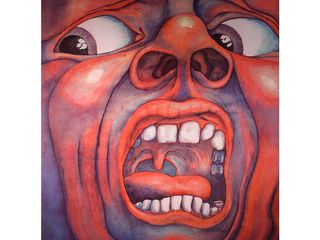
King Crimson - In The Court Of The Crimson King (1969)
“The first song is 21st Century Schizoid Man, and it’s such a stellar, freaky track. You don’t really think of it as being made by these incredibly high-minded musicians; you just go, ‘Wow, that’s fucking insane!’
“It’s a whole different matter when you sit down and try to play the stuff, though. You have to be pretty musically accomplished to pull off King Crimson. A lot of head scratching is involved: ‘How are they doing all of these things?’
“The rest of the record has some pretty mellow moments. I don’t know if it ever gets to pure jazz, but there’s elements that are certainly jazz influenced. ‘Prog rock’ as a term wasn’t being used at the time of this record – I don’t think it was – so King Crimson were doing an art rock and psychedelic thing. But they laid the groundwork for a lot of prog with this album.”
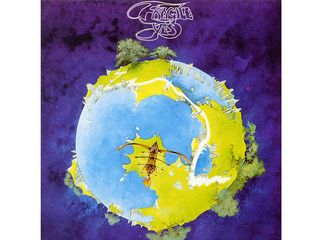
Yes - Fragile (1971)
“This record was pretty popular – some of the songs got on the radio and were actual hits. It wasn’t a difficult album to listen to, although there are moments where they went off and got indulgent – nothing like they would do on later records.
“The songs are very emotional and beautiful, so you can forgive any of their excesses. Yes certainly understood the power of arrangements and how to build songs. Plus they had great vocal harmonies – people tend not to focus on that because the playing is so massive.
“Sunrise is an incredible cut, especially at the end where Jon Anderson is at his peak in terms of singing and his lyrics – everything is at this overwhelming crescendo. It’s hard to beat. Jon Anderson strikes me as a cross between this hippie guy and something of a pre-punk rocker, and he was surrounded by these monster musicians who could play anything.”
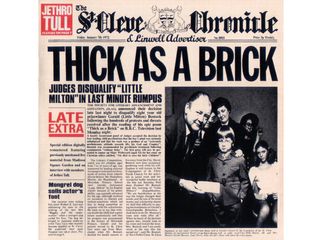
Jethro Tull - Thick As A Brick (1972)
“It was hard to decide between this and Aqualung, but Aqualung is more classic rock to me, whereas Thick Is A Brick is prog. It’s an absurd record in many ways, with Ian Anderson telling this story of a boy – so it’s a concept record, really. What can be more prog rock than that?
“There are some passages where they go too far with their polyrhythms, but there’s a lot of great, amazing and totally off-the-wall musical passages that work. You sit there and go, ‘Wow, they’ve lost their fucking minds!’
“It’s funny about Ian playing the flute: When I was a kid, I didn’t think so much that it wasn’t a rock instrument; I just thought that it was another sound. It wasn’t until later that I was like, ‘Hmm, you’ve got this guy in tights, he’s on one leg, and he’s playing the flute.’ Hey, I’ve used flute on a lot of my records, so there you go.”
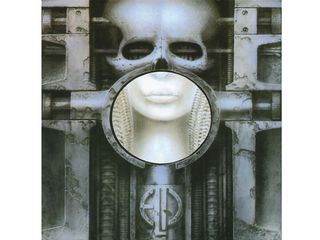
Emerson, Lake & Palmer - Brain Salad Surgery (1973)
“Karl Evil 9, the song with ‘Welcome back my friends to the show that never ends’ – that’s just terrific. And the artwork by that guy [H.R. Giger] who did the stuff for Alien is remarkable. You could stare at that all day.
“I didn’t buy this record myself, but my older brothers played it and played it and played it, so I got to know it pretty well. ELP were a huge group, but beyond the actual music, they had theatrics on their side – Keith stabbing his keyboards with knives and all of that.
“ELP were a very angular group, much more influenced by classical music than maybe Yes were. A lot of what they did was pretty outrageous – some of it worked, and some… I don’t know. But they knew how to write a catchy pop song, for sure. Greg Lake wrote very pretty melodies.”
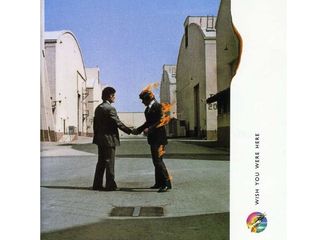
Pink Floyd - Wish You Were Here (1975)
“Again, at the time, I didn’t think of Wish You Were Here or even Dark Side Of The Moon as being ‘prog rock.’ To me, it was the music of the day. There are some long passages on this record, though. They don’t get into the musical polyrhythms and things that other bands were doing. But they explored the space and disregarded limitations and got a little self-indulgent.
“It’s kind of funny – this was one of the first records where I was aware that albums were actually released; before that, they just sort of existed. This one people were actually waiting for. It made an impact on the day it came out. People were like, ‘Oh, yeah, the new Pink Floyd record is here!’
“It’s great stuff. Shine On You Crazy Diamond and Wish You Were Here are amazing songs. You just put them on and get into them. Have A Cigar – who was singing that? Roy Harper? Tremendous. Great singing, production – it’s an experience. People who put Pink Floyd down, I just can’t understand them. They were a brave, adventurous, insane group.
“And the album cover is so mysterious, too. The guys shaking hands, and one of them is on fire – you just look at it and trip out to it. The way the record was packaged in this blue cellophane had a big influence on me. That’s what I wanted to do with albums. I didn’t want to just do it the way everybody else did."

Joe is a freelance journalist who has, over the past few decades, interviewed hundreds of guitarists for Guitar World, Guitar Player, MusicRadar and Classic Rock. He is also a former editor of Guitar World, contributing writer for Guitar Aficionado and VP of A&R for Island Records. He’s an enthusiastic guitarist, but he’s nowhere near the likes of the people he interviews. Surprisingly, his skills are more suited to the drums. If you need a drummer for your Beatles tribute band, look him up.

"Reggae is more freeform than the blues. But more important, reggae is for everyone": Bob Marley and the Wailers' Catch a Fire, track-by-track

“Part of a beautiful American tradition”: A music theory expert explains the country roots of Beyoncé’s Texas Hold ‘Em, and why it also owes a debt to the blues

"Reggae is more freeform than the blues. But more important, reggae is for everyone": Bob Marley and the Wailers' Catch a Fire, track-by-track

“Part of a beautiful American tradition”: A music theory expert explains the country roots of Beyoncé’s Texas Hold ‘Em, and why it also owes a debt to the blues

